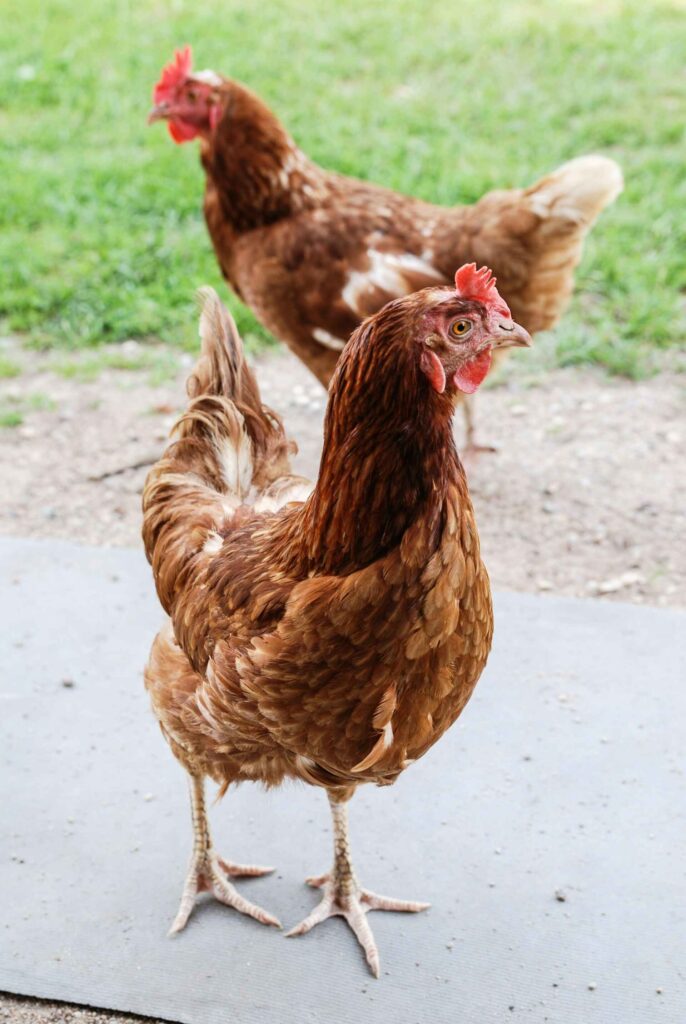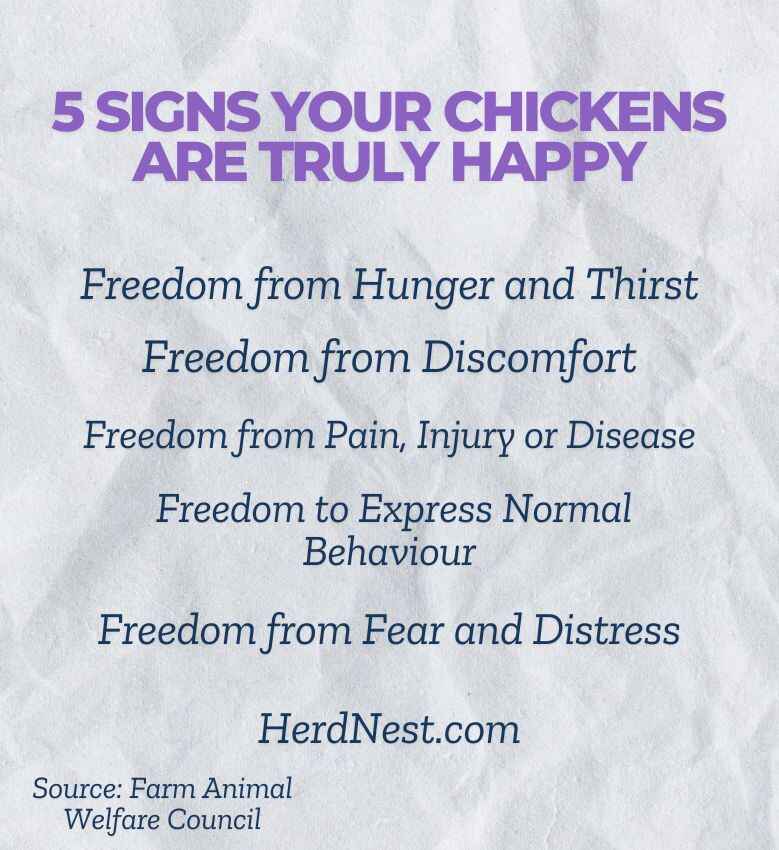Many people assume that chickens are not smart, but this belief is largely assigned to them because they are farmed animals. Studies by Scientific American and the Sentience Institute suggest otherwise, revealing that these birds have remarkable cognition and emotional depth.
Dr. Lori Marino, a neuroscientist, argues that their intelligence has been overlooked due to human views of them as mere food sources. Unlike broiler chickens that are raised in factory farms and confined, wild chickens must constantly adapt to their circumstances, displaying a startling ability to solve problems. Their behaviour shows signs of empathy, as they can recognise familiar faces and even recall past interactions.
I once witnessed a neighbor’s chickens rush toward an open package in the back of my truck, eagerly gobbling up peanuts carried by the wind. This seemingly stupid act wasn’t just random; these domestic creatures have been inbred over centuries to prioritize eating and survival.
Unlike other animals, they rarely face challenges in their controlled environments. But in the wild, their ability to exist and navigate their world becomes evident. The Scientific American findings highlight that chickens’ minds work in ways we still don’t fully understand, making it compelling to reconsider how they are treated. Whether for their eggs, meat, or their surprising trait of adaptability, these birds deserve more respect than they often receive.
Table of Contents
ToggleKeen Awareness in Chickens
Chickens are far more inquisitive than people think. Research from Macquarie University by Dr. Chris Evans has studied their ability to notice changes in their world and communicate with remarkable accuracy.
They can signal danger when a predator appears and even relay information to others about the discovery of food. Their communications are so precise that they describe critical events with unexpected precision.
I once observed a group of chickens suddenly freeze, all staring in the same direction before darting away. Moments later, a hawk swooped down—proof that their ability to detect and respond to their appearance in their surroundings is nothing short of impressive.
Strategic Thinkers: The Tactics of Chickens
Many people assume chickens act on instinct alone, but research by Dr. Marino suggests otherwise. These animals display complex social behaviors, sometimes using deception to gain an advantage.
Males have been observed making a call to signal food even when none is present, tricking females into approaching. This tactic allows them to stay engaged with potential mates while being defended from other rivals.
Studies by Gyger and Marler (1988), as well as Evans (2002), found that females develop counter-strategies, eventually responding less to dishonest calls. Such striking tactics are similar to those seen in primates, showing how capable chickens are in navigating positive yet competitive interactions.
How Fast Do Chickens Learn?
Studies like The Intelligent Hen by Dr. Christine Nicol show that chickens can learn surprisingly quickly, even outperforming a human child in some tasks. They have the capacity to develop problem-solving skills and understanding of concepts like structural engineering.
Research suggests they can track numbers up to five and show object permanence, a trait similar to apes. While a child takes months or even years to accomplish certain milestones, chickens can master them much faster. The author of the study highlights their ability to process information in a way that challenges our comparison between chickens and humans.
Chickens and Math: More Than You Think
It might be shocking, but chickens can perform arithmetic, just like some birds, chimps, and other animals. A study published in 2009 found that even newborn chicks could discriminated between two and three objects without any specific training.
Dr. Marino writes that chickens possess an understanding of numerosity and even share basic math capacities with other species. They were observed spontaneously choosing the larger stimulus set, always preferring the greater number in different cases. These findings challenge the idea that only higher mammals have numerical reasoning.
Patience and Decision-Making in Chickens
A 2005 study led by Dr. Siobhan Abeyesinghe found that chickens can anticipate the future and even exercise self-control. When given the choice between a small immediate reward and a larger delayed one, they would wait, showing they were capable of long-term decision-making. This suggests that their mental ability allows them to form expectations and respond to cues in their environment.
However, this also makes them vulnerable to stress, worry, and anxiety when their predictions are not met. Their behavior is shaped by experiences, meaning the way they are managed can dictate their well-being. Without proper care, they may face frustration, thwarting, and psychological strain, making it important to minimize unnecessary distress in their environment.
A Sense of Self in Chickens
Many assume that chickens act purely on instinct, but research by Marino suggests otherwise. These birds can anticipate the future, showing signs of self-control and worry about what lies ahead.
Studies like Genty et al. 2004 indicate that such behavior is associated with the development of self-awareness and autonomy—the ability to think about their choices and choose different outcomes based on their experiences. This challenges the idea that chickens lack independent thought.
Can Chickens Recognize Their Owners?
Surprisingly, chickens can recognize up to 100 different faces and even remember how they were treated by humans. They can associate certain experiences with either positive or negative interactions, showing a deep awareness of their surroundings.
Many chicken keepers notice that their birds certainly show affection and love towards those who care for them regularly. If they know someone as a kind and gentle caretaker, they respond warmly, proving that chickens form strong emotional bonds just like other intelligent animals.
Chickens and Affection: Do They Enjoy Petting?
Not all chickens react the same way to being petted, but many grow accustomed to it and even seem to enjoy it. In a documented experience by We Animals Media Founder Jo-Anne McArthur, she narrates how she visited a chicken farm and observed how these birds responded when they realized she meant no harm.
At first, they were cautious, but soon the bolder ones moved closer and began interacting with her. Some even climbing onto her lap, settling down, and starting to preen like a cat.
Even in factory farming or industrial farms, where they have not experienced kindness, some chickens show affection in safe sanctuaries. Their ability to form preferences and bond with humans challenges the idea that they lack emotional depth.

Chickens Have Their Own Personalities
Unlike a faceless flock, chickens are individuals with unique personalities and social awareness. Dr. Marino writes that there is an abundance of anecdotal evidence showing how these birds form strong bonds in sanctuaries, backyard settings, and even among farmers.
Mother hens display maternal traits that affect the behavior of their chicks, shaping how they interact. Chickens not only recognize other members of their group, but they can also differentiate between them, keeping track of their social hierarchy within the flock. Their ability to see these differences and track relationships highlights their intelligence in ways often overlooked.
Hens Show Strong Protective Instincts
Like mothers in many species, hens are deeply protective of their young and react strongly when they sense threats. A 2013 study found that mother hens adjust their behavior based on their knowledge of potential danger.
The authors write that hens increased their walking and vocalizations while decreased their preening when their chicks were threatened, even if the chick groups did not show immediate reactions.
This behavior was influenced by their expectations, showing a deep emotional connection. Interestingly, the hens even experienced stress-induced hyperthermia, proving that their maternal instincts go beyond simple care. The way they respond in these environments is directly associated with their ability to perceive and act in accordance with real or perceived dangers.
Do Chickens Dream?
Many researchers believe that chickens experience REM (rapid eye movement) sleep, just like any other animal. While we may never truly know what they are dreaming about, studies suggest that their brains go through similar sleep cycles to those of mammals. This raises interesting questions about their cognitive abilities and how they process memories while they rest.
Chickens Can Feel for Others
Researchers have concluded that chickens can understand the feeling of another bird and even show signs of empathy. A mother hen, for example, reacts when her chicks are experiencing distress, displaying clear signs of concern. Studies found that hens become distressed when their young are in danger, proving they are emotionally aware and deeply connected to their flock.
Do Chickens Remember? Their Memory Might Surprise You
People often think of elephants when it comes to memory, but chickens also have a remarkable ability to recall things. Researchers have found that chicks can remember objects even after they are hidden from view, proving they do not simply rely on what they see in the moment. This challenges the idea that birds easily start forgetting, showing that their cognitive skills are more advanced than many assume.
Understanding Happiness in Chickens
The Farm Animal Welfare Council has set guidelines for animal well-being, including the Five Freedoms, which cover Freedom from Hunger and Thirst, Freedom from Discomfort, Freedom from Pain, Injury, and Freedom from Fear and Distress.
However, investigations have shown that even on high-standard farms, many broilers still suffer and struggle to survive. Animal welfare researchers, including Dr. Mary Baxter, have studied ways of measuring chicken happiness and contentedness, focusing on behavior rather than industry expectations.
In The Conversation, she discusses how certain actions, such as sparring, frolicking, and food running, were observed in the 1950s and 60s, but were later dismissed as aggression or running-with-flapping due to the reluctance of scientists to accept birds as emotional creatures.
However, those who have interacted with rescued chickens in sanctuaries often see a different side. These birds display clear signs of positive emotions, and some even purr when relaxed.
Their presence in safe environments allows them to exhibit natural play behaviors, showing they can feel joy when free from fear and disease. While the industry may still debate what defines true welfare, recognizing these signs in poultry proves that chickens have emotional depth beyond their role in farmed systems.

Do Chickens Experience Pain?
Like humans and other animals, chickens are fully capable of feeling pain. Research in Applied Animal Behavior Science has published findings showing that their bodies contain receptors for pain perception, just like mammals.
These receptors have been identified in different areas of their body, including the beak, mouth, nose, joint capsule, and scaly skin. When exposed to noxious stimuli, chickens show behavioral and physiological responses similar to those seen in mammals.
Experiments also reveal that chicks suffer acute pain from beak trimming, while older birds experience chronic pain from orthopedic disease, bone breakage, and other conditions caused by rapid growth.
Modern broilers are raised to grow large unnaturally fast, often being slaughtered at just 45 days old. The Global Animal Partnership conducted research that found fast growth leads to poor welfare, affecting their mobility, hock, and breast yield, while also increasing muscle damage, myopathies, and other health problems.
Many birds struggle to survive for weeks or months, showing signs of suffering due to environmental pollution, feather pecking, and high activity levels that their bodies cannot handle. These findings highlight the need for better industry welfare standards to reduce unnecessary pain in laying hens and poultry overall.
Are Chickens Like Companion Animals?
Many people now see chickens as more than farm animals, recognizing them as unique individuals with distinct personalities. These birds can be affectionate, inquisitive, and even playful, much like traditional household pets. In 2017, The Guardian explored this idea as more families in the UK began keeping chickens as companions.
A similar trend was seen in the U.S., where L.A. Times called raising chickens one of the fastest-growing hobbies. However, the article also warned that many people fail to understand the needs of these animals, leading them to suffer when not properly cared for. Despite this, their intelligence and emotional depth continue to challenge what we consider as common pets.

Are Chickens More Intelligent than Dogs?
Dogs are often praised as the smartest and most loyal animal companions, but recent research reveals that chickens may be just as clever in their own right. Chickens can recognize over 100 faces, solve problems, understand cause and effect, and even demonstrate reasoning skills similar to those of a human toddler.
While dogs excel at social and emotional intelligence, especially with humans, chickens display impressive memory, self-control, and learning abilities that challenge how we traditionally rank animal intelligence.
Reimagining Chickens: Smart, Social, and Sentient
The evidence shows that chickens are intelligent, capable of complex thought, and even sentient beings. Yet, because they are often seen as farm animals, their intellect is overlooked.
Dr. Lori Marino argues that we must change our approach and begin studying them from a fresh viewpoint rather than focusing only on their ability to grow, lay eggs, or avoid peck injuries. Unlike cows, chimpanzees, or a dog, chickens also have an evolutionary history that shapes their behavior.
Ignoring their cognitive skills creates a disconnect in how we see their worth. If we acknowledge their ability to feel pain, experience suffering, and adapt to their surroundings, we can better understand these remarkable birds.




